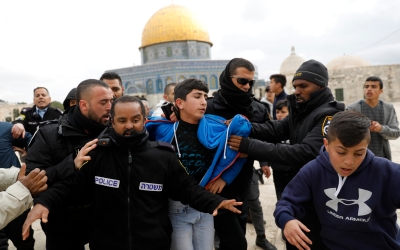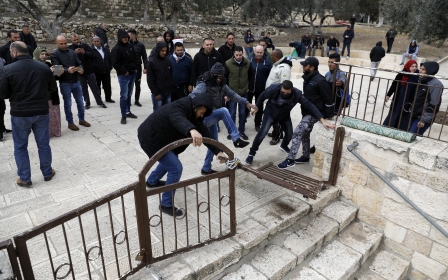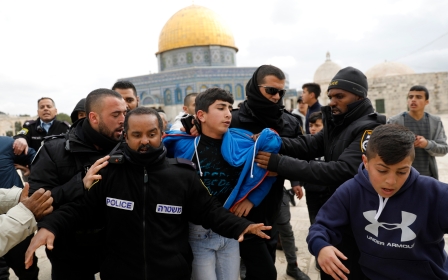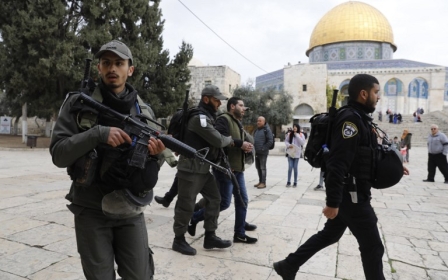Thousands of Palestinian demonstrators open long-closed Al-Aqsa gate
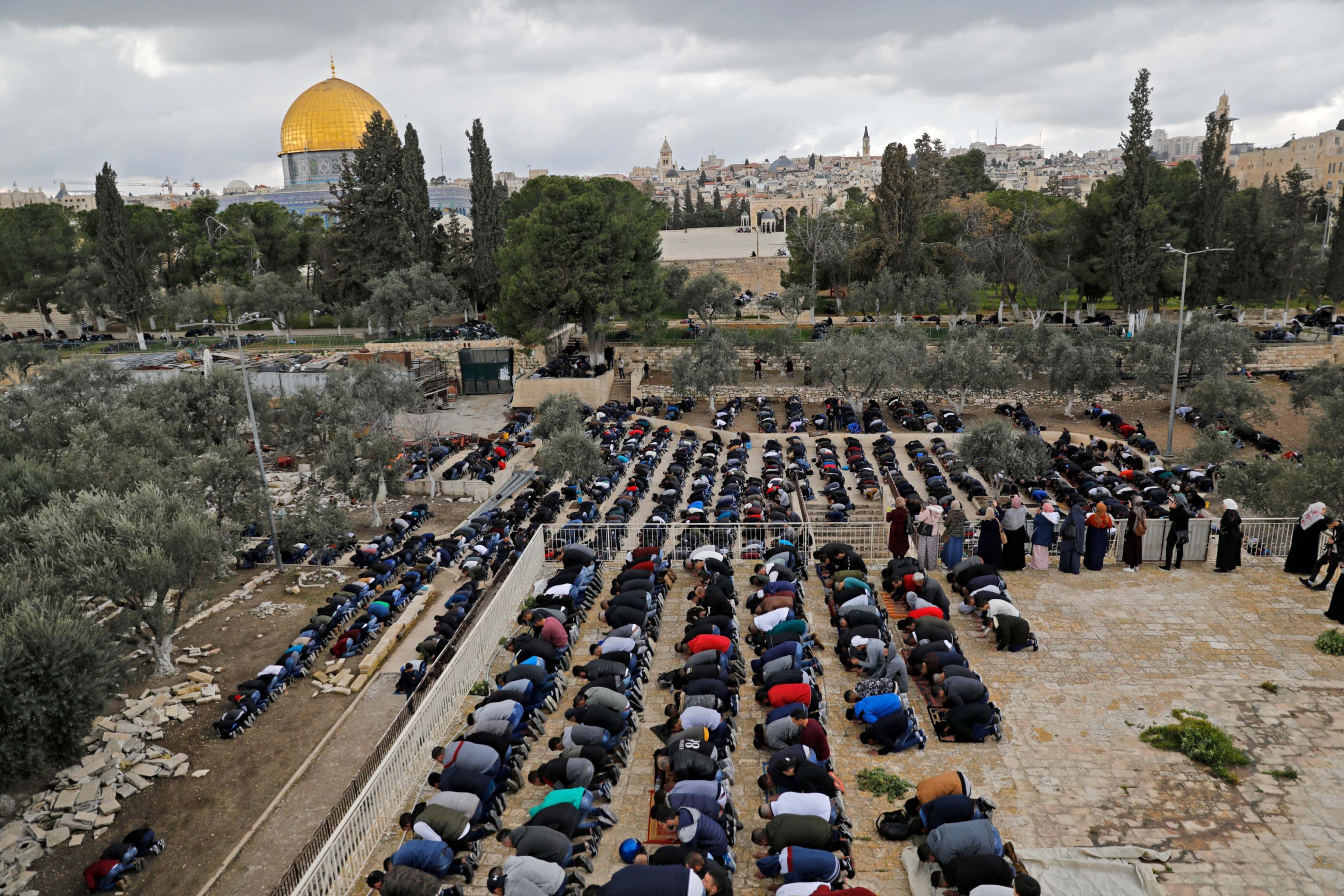
Despite the increased deployment of Israeli forces across the Old City of Jerusalem, thousands of Palestinians made their way to the Al-Aqsa mosque compound for prayers and protests on Friday over perceived threats to the status quo at the holy site - reopening a hall of the compound that had been closed by Israeli forces for 16 years.
Israeli police forces detained at least 60 Palestinians in overnight raids in occupied East Jerusalem between Thursday and Friday, ahead of the demonstration.
Israeli police spokesman Micky Rosenfeld said in a statement that forces “arrested 60 suspects involved in incitement to violence” ahead of the protest, adding that “police will continue to make arrests and are operating to make sure the Friday prayers on the Temple Mount take place respectfully” - using the Israeli term for the Al-Aqsa compound.
Palestinian worshippers and activists have staged regular prayers and protests near the al-Rahmeh gate of the Al-Aqsa compound since Sunday, after Israeli forces placed new chains on a fence preventing access to the gate since 2003.
New MEE newsletter: Jerusalem Dispatch
Sign up to get the latest insights and analysis on Israel-Palestine, alongside Turkey Unpacked and other MEE newsletters
The latest tensions came after members of the Waqf - the Islamic endowment in charge of the holy site whose staff has recently increased - opened the al-Rahmeh Gate to the Al-Aqsa Mosque compound on 14 February and prayed in its hall. Israeli forces responded on Sunday by sealing the gate with iron chains.
Official Palestinian Authority news agency Wafa reported that worshippers and demonstrators entered the al-Rahmeh Gate hall on Friday for the first time in 16 years. Palestinians prayed inside the hall and defiantly raised a Palestinian flag. The Waqf reportedly announced that it would keep the hall permanently open, although it remained to be seen whether Israeli authorities would allow the opening to become permanent.
There were no immediate reports of detentions or altercations between Israeli forces and Palestinian worshippers at the Al-Aqsa compound itself on Friday.
At least 19 Palestinians had been detained at Al-Aqsa earlier in the week during altercations with Israeli forces attempting to break up protests against the new chains. The majority of those detained before Thursday have been released from police custody with bans on returning to Al-Aqsa for at least two months.
While Israel wrested control of East Jerusalem and the West Bank from Jordan in the 1967 war, the Hashemite kingdom has nonetheless retained control over the Al-Aqsa compound itself through the Islamic Waqf that administers the holy site.
The status of Al-Aqsa has long been a source of tensions between Palestinians and Israelis.
Jewish Israelis believe that the Al-Aqsa Mosque compound - the third holiest site in Islam after Mecca and Medina - stands where the Second Temple once stood, and some far-right Israeli activists have advocated for the destruction of the Al-Aqsa compound to make way for a Third Jewish Temple.
Meanwhile, Palestinians see any attempt by Israel to change the status quo at Al-Aqsa and the rest of the Old City of Jerusalem - including its holy sites from other religions - as an attempt to erase Palestinian claims to occupied East Jerusalem as the capital of a future Palestinian state, as part of a two-state solution.
The increasing number of Israeli settlers touring and praying inside the Al-Aqsa compound under police protection - in spite of regulations on non-Muslim worship at the site - have worried the Waqf that Israel may be pushing for the Judaisation of the compound.
Middle East Eye delivers independent and unrivalled coverage and analysis of the Middle East, North Africa and beyond. To learn more about republishing this content and the associated fees, please fill out this form. More about MEE can be found here.


